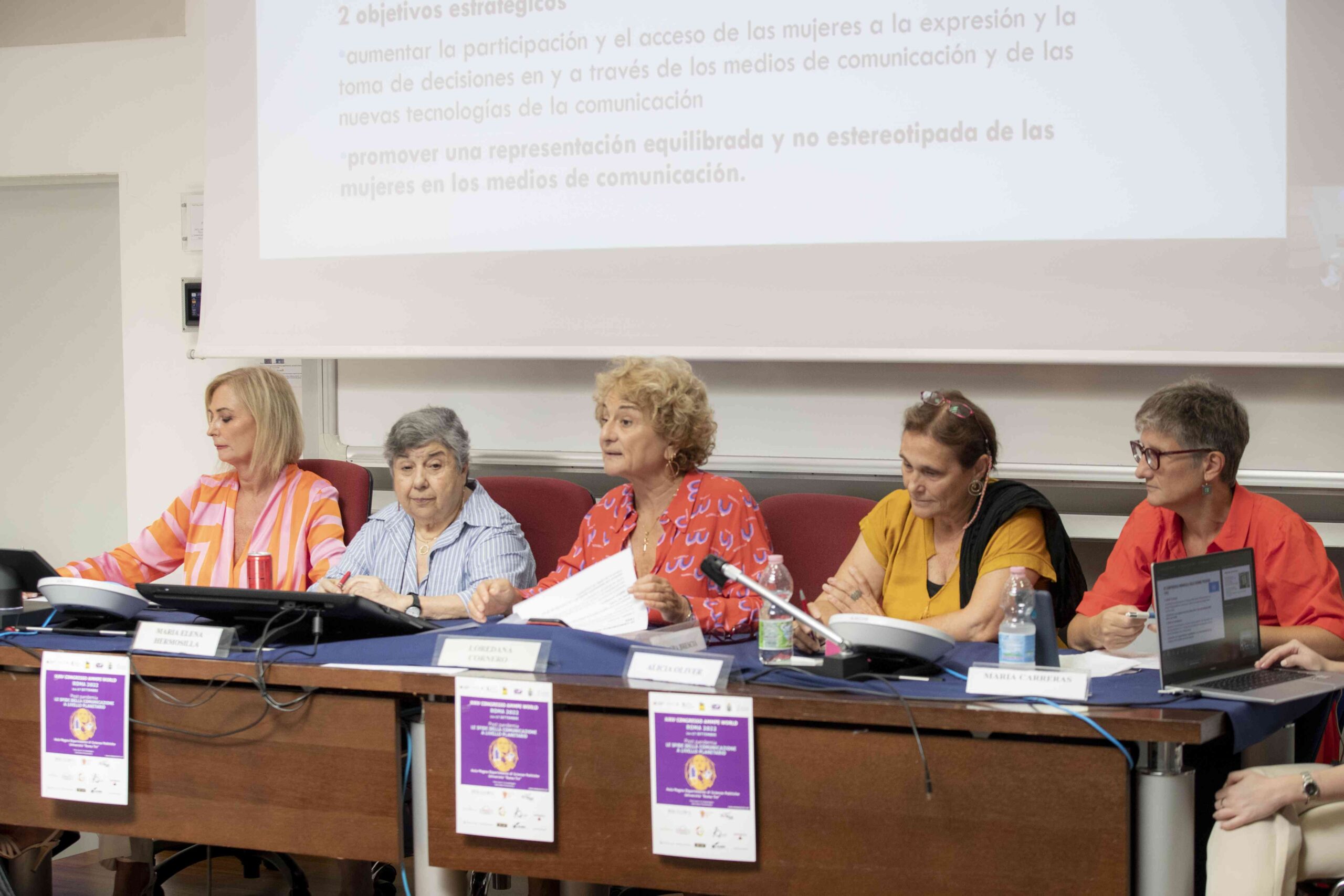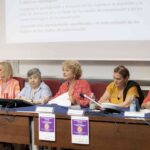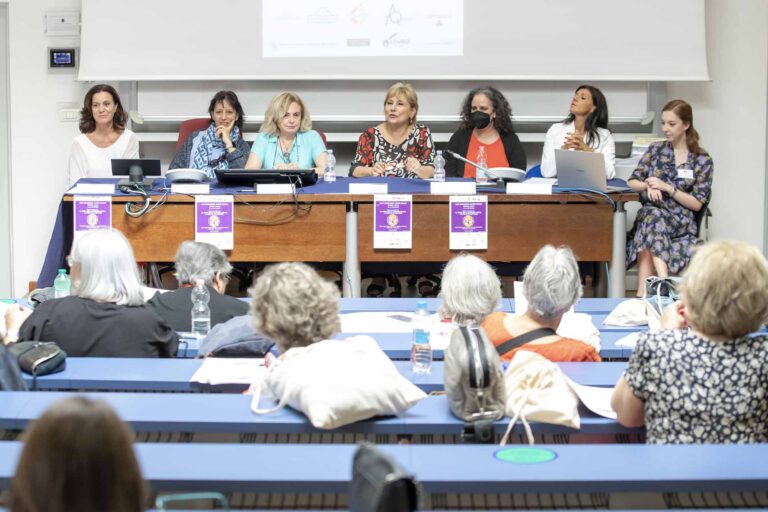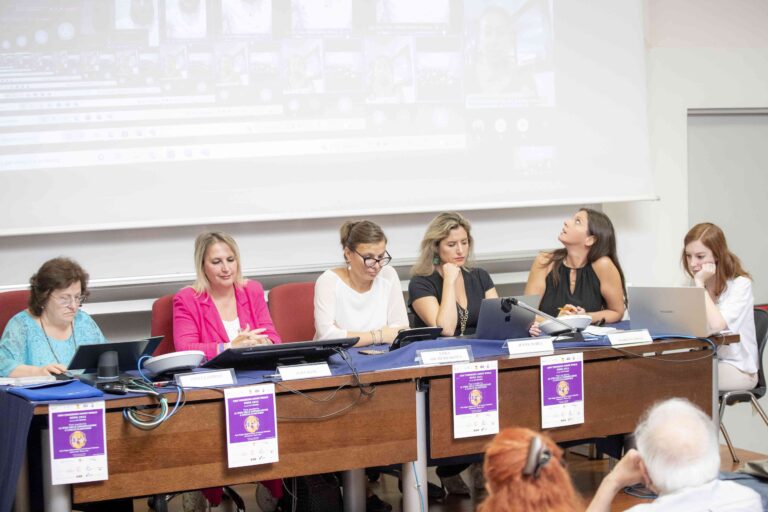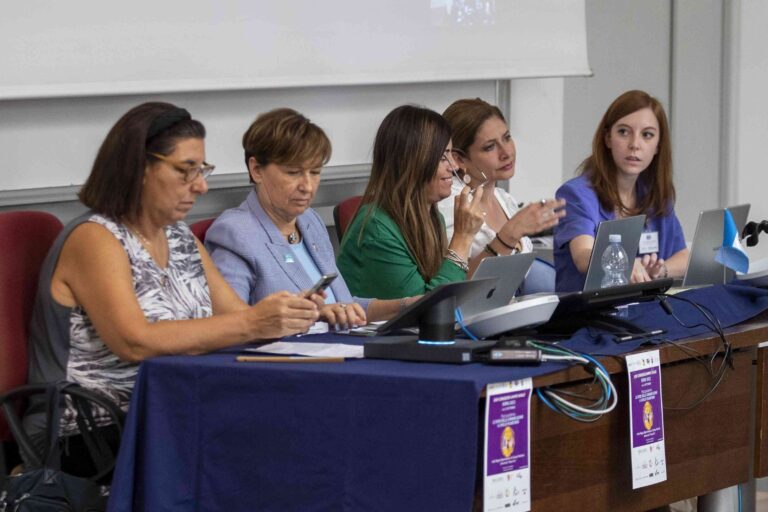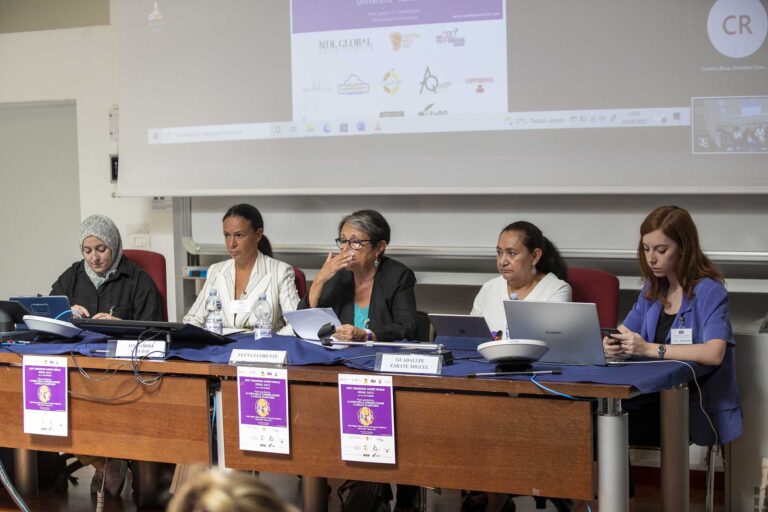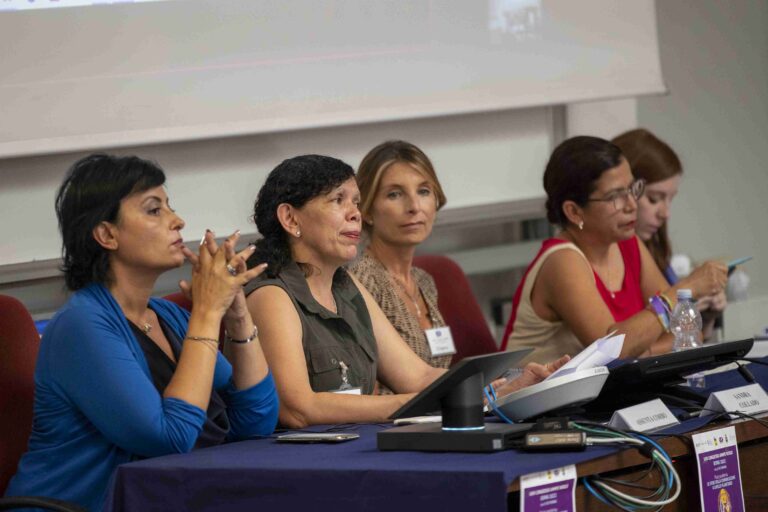Gender disparity and stereotypes in the world of communication
Moderator Loredana Cornero
Rapporteurs Cecilia Robustelli (Italia), Maria Carreras y Goicoechea (Spagna), Susi Ronchi (Italia), Alicia Oliver Rojo (española), María Elena Hermosilla (chilena), Maura Brescia (chilena), Virginia Ciaravolo (italiana), Marta Rulln (spagnola).
After the introduction of the moderator Loredana Cornero who recalls the commitment on the subject of sexism in the language since the 70s and in particular the volume “The sexism of the Italian language” by Alma Sabatini, the first intervention is by Cecilia Robustelli, professor of Italian Linguistics at the University of Modena and Reggio Emilia, collaborator of the Accademia della Crusca and vice-president of the European Federation of National Institutions for the Language.
Her report traces the qualifying points of discussion on the relationship between language and sexual difference and her reflections on the use of language, with particular reference to the representation of women, and examines recent proposals to replace grammatical endings with a symbol. and the possibility of its concrete implementation.
La segunda intervención de María Carreras y Goicoechea, profesora de la Universidad de Bolonia, propone una reflexión sobre un corpus de títulos sobre el Covid-19 con el objetivo de evitar la perpetuación de modelos patriarcales a través de un uso (in)voluntariamente sexista del lenguaje, por un lado, y la exclusión de quienes no se reconocen en el modelo binario tradicional, con el estudio de algunos titulares de periódicos españoles y latinoamericanos, que ofrecen ejemplos de uso consolidado que pueden tomarse como modelo de buenas prácticas para un lenguaje inclusivo.
Susi Ronchi, journalist for Rai TGR, Coordinator of Giulia Giornaliste Sardegna, recounts some of the most recent data on gender equality in the media, detected by the latest monitoring carried out by the GMMP (Global Media Monitoring Project), which shows a significant decrease attendance of women as experts from 18% in 2015 to 12% in traditional media in 2020.
Alicia Oliver Rojo, periodista especializada en temas de género, Fundadora de la Asociación de Mujeres Periodistas de Cataluña (ADPC), de la Red Europea de Mujeres Periodistas (REMP) y de la Red Internacional de Periodistas con Perspectiva de Género (RIPVG), y María Elena Hermosilla, profesora de periodismo y comunicación de las Universidades de Chile, Andrés Bello, Portales y la Universidad Federal de Santa Catarina (Brasil), presenta un interesante reportaje sobre la presencia de la mujer en las noticias de los diarios como palanca fundamental para el empoderamiento de las mujeres, recordando cómo el capítulo J de la Plataforma de Beijing avanza muy lentamente y que es necesario entender por qué.
Maura Brescia, Maura Brescia, journalist, with film and television production studies, presents a video that traces the arduous path of Chilean and Latin American writers for their literary recognition. An investigation that, starting from the first writers, including two nuns from the convent of Santiago from the 16th century, covers the prism of female narrators and novelists at a continental level and their long struggle against gender discrimination, which continues to the present day.
El panel se cierra con la intervención de Virginia Ciaravolo quien subraya la estrecha relación entre los feminicidios y la violencia del lenguaje, así como la bochornosa comunicación de los medios de comunicación sobre la violencia contra las mujeres que debe ser absolutamente cambiada.
Added to the Minutes of the Congress is the interesting speech by Marta Rullan, director of the EFE Agency in Italy, which begins with the following statement: “Despite the current uncertainty in which society is immersed, there is a fundamental certainty: information is a right and its restriction, the violation of a fundamental freedom to understand the world in which we live”.
In this context, she stresses, “talking about women and the media today is talking about how access to management, where the decisions that make a difference are made, is still closed to female journalists, since only 24% of managerial positions in the media is occupied by women in the Spain of the 21st century, a small advance that shows how long the road to equality is”.
